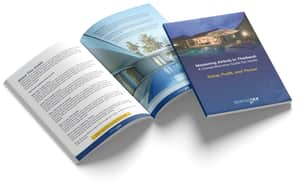如果您在泰国经营 Airbnb 别墅并接待外国客人,您不仅要经营酒店业务,还要遵守泰国移民法。让许多别墅业主措手不及的一个关键要求是 TM30 客人报告义务。
不遵守这一规定可能会导致罚款、法律纠纷,甚至今后的营业执照问题。以下是您需要了解的保持合规和避免不必要处罚的知识。
什么是 TM30?
"(《世界人权宣言》) TM30 是必须提交给泰国当局的移民通知表 24 小时内 外宾抵达您的房产时。
其目的是告知移民局外国人的住宿地点,无论是酒店、别墅、服务式公寓还是私人住宅。
如果您将别墅短期出租给非泰国客人、 您必须依法报告他们的逗留情况即使您通过 Airbnb 或其他平台管理预订。
谁需要报告?
如果你是 所有者 财产,或作为 经理或操作员如果根据泰国法律,您的物业不属于酒店,则报告客人的责任在于 你.
这包括
- Airbnb 别墅的外国业主
- 管理短期住宿别墅的泰国公司
- 处理预订的物业经理和代理
TM30 义务即使在客人逗留以下时间时也适用 有一晚.
步骤:如何申请 TM30
主要有两种报告方式:
方案 1:亲自前往
- 请携带以下材料前往当地移民局:
- 填好的 TM30 表格
- 客人护照复印件(照片页和签证章)
- 别墅业主身份证/护照或公司文件复印件
- 别墅地契或租赁协议副本
- 提交时间 24 小时 客人登记入住
- 获取加盖公章的收据作为合规证明
方案 2:在线报告
您也可以通过以下方式在线提交 TM30:
- https://immigration.go.th → 电子服务 → TM30
- 或 TM30 移动应用程序。您可以从 Google Play 商店(Android)或 Apple App Store(iOS)下载。
您需要先注册成为酒店业主/经营者。一旦获得批准,您就可以轻松登录并提交新的客人报告。不过,在线系统可能不一致,而且当地办事处可能有自己的偏好,因此一定要查看您所在地区接受什么。
不报告会怎样?
如果未按时正确提交 TM30,可能会导致以下后果:
- 对每位未登记客人处以 800 至 2 000 泰铢不等的罚款取决于案件和移民官的自由裁量权
- 延误或拒绝 在客人的移民程序中,包括 签证延期 和 90 天报告
- 加强监督 特别是如果您的房产位于人流密集的旅游区或有违规历史。这可能包括 移民官员的抽查特别是在旺季或接到投诉后
及时准确的报告不仅仅是一种形式,它对保护您的业务和客人在泰国的合法身份至关重要。
符合 TM30 标准的最佳实践
为了简化客人报告程序并降低被处罚的风险,请考虑以下几点 最佳做法:
- 保存航海日志
记录客人抵达和 TM30 提交日期。这有助于确保不遗漏任何申报,尤其是在您经常接待客人或连续预订的情况下。 - 培训员工或物业经理
如果您不是全职在泰国工作,那么培训一名值得信赖的经理或员工来代表您处理 TM30 提交事宜至关重要。及时提交文件是您的责任--即使别墅的日常管理由其他人负责。 - 确保您的别墅合法注册
遵守 TM30 并不能取代合法短租许可的必要性。如果您的房产没有获得适当的许可,报告外国客人可能会引起对更广泛的法律违规行为的关注。办理许可证是对 TM30 合规性的补充,可保护您的整个经营活动。
我们可以帮助您保持合规
在 Rental Tax Thailand我们与全国各地的短期租赁 (STR) 别墅业主合作,简化合规手续。
我们的团队可以
- 设置 TM30 报告账户
- 培训您的员工或代表您处理报告事宜
- 就别墅许可、税收和地方分区问题提供建议
- 帮助您避免罚款、延误和声誉受损
不确定自己的做法是否正确?
立即预约免费咨询 让我们帮助您做好客人报告工作--这样您就可以专注于提供优质的住宿服务,而不必担心文书工作。
